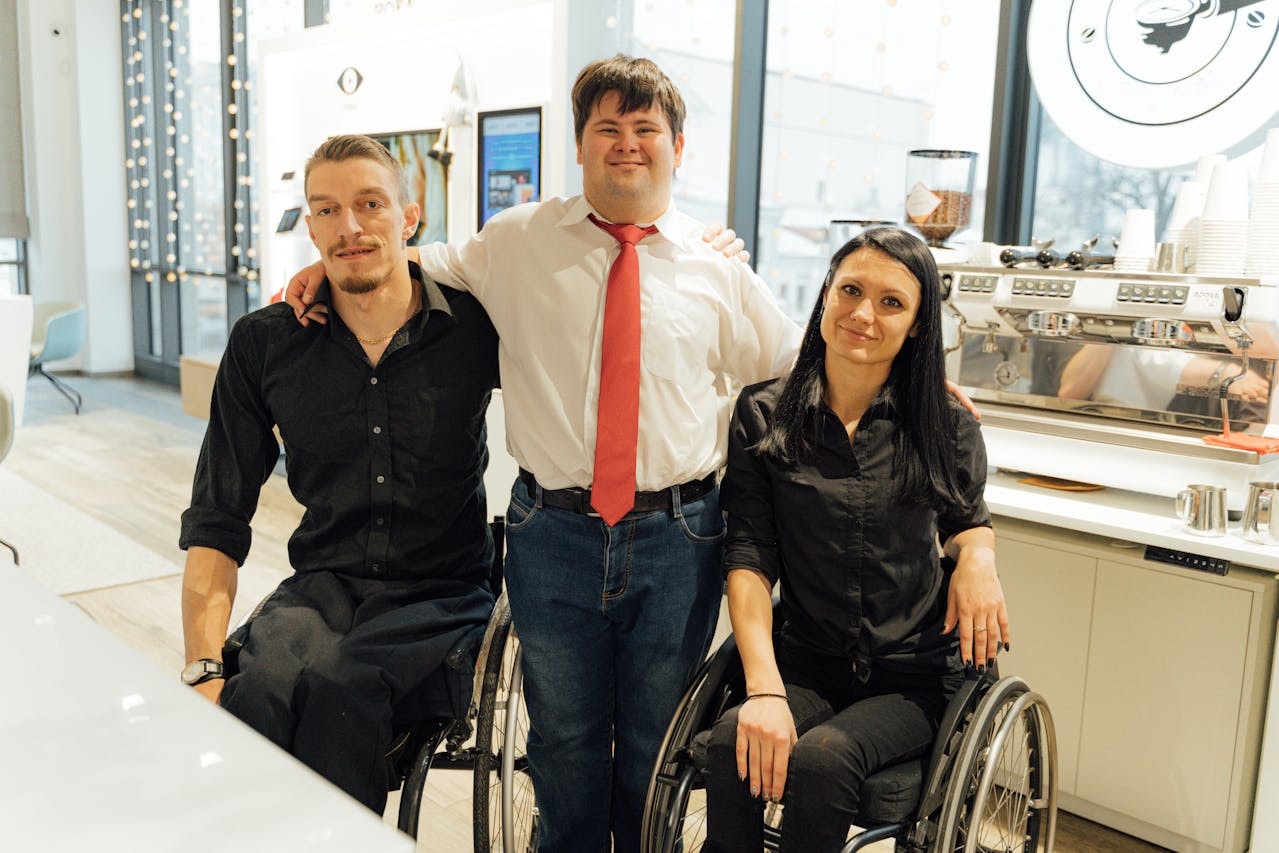The National Disability Insurance Scheme (NDIS) has transformed the way Australians with disabilities access essential services, including autism support. For individuals on the autism spectrum, accessing and maximising autism support services under NDIS can make a life-changing difference. This guide explores everything you need to know about autism support under the NDIS, how to navigate the system, and what resources are available to empower individuals and their families.
Understanding Autism Support Services under the NDIS

Autism support services under NDIS are designed to enhance the quality of life, social inclusion, and economic participation of individuals with autism spectrum disorder (ASD). The NDIS, managed by the National Disability Insurance Agency (NDIA), aims to provide personalised access support services through various funding categories, helping participants achieve greater independence.
Key Components of NDIS Autism Support Funding
1. NDIS Autism Funding Categories
The NDIS allocates funding based on individual needs, divided into three main categories:
- Core Funding: Covers daily living needs, including personal care support, self-care, and access to assistance with everyday activities.
- Capacity Building Funding: Focuses on skill development, including occupational therapy, support coordination, and other autism support services that boost independence.
- Capital Funding: Supports assistive technology and modifications that improve functional capacity.
Each autism NDIS plan is tailored to the participant’s needs, enabling them to reach their goals.
2. Autism Spectrum Disorder and NDIS Eligibility
The NDIS eligibility criteria are based on age, residency, and disability type. To be eligible, individuals must have a permanent disability that affects their functional capacity and be under 65 years old. Australian citizens, permanent residents, and holders of a Protected Special Category Visa can apply. Importantly, autism is recognised as a permanent disability by the NDIS, and different levels of autism receive different levels of support.
How to Access Autism Support Services under NDIS
Step 1: Completing the NDIS Access Request Form
The journey begins by completing an Access Request Form. This form assesses eligibility and requires supporting documents, such as reports from health professionals or further assessments that confirm the autism diagnosis. Some individuals may also need to make a verbal access request by contacting the agency management NDIS directly.
Step 2: Submitting Supporting Documents
Supporting documents for the access request should include diagnostic details and reports demonstrating the individual’s support needs. Assessments provided by specialists, such as speech therapists or psychologists, are essential to illustrate the impact of autism spectrum disorder on daily life.
Step 3: Preparing for the NDIS Planning Meeting
The NDIS planning meeting is a crucial step for determining which autism support services will be funded. During this meeting, a Local Area Coordinator or support coordinator helps design a tailored NDIS plan by discussing goals, current support needs, and the types of services that may be beneficial.
Types of Autism Support Services Available Under NDIS

1. Early Intervention and Therapy Services
Early intervention is crucial for young children with autism. Through NDIS, families can access services such as speech therapy, occupational therapy, and behavioural therapy. These services aim to enhance communication skills, social interaction, and daily life skills.
2. Support Coordination and Plan Management
Support coordinators help NDIS participants connect with local autism support services, providing support and ensuring they access the services they need. A plan manager can handle the financial aspects of the NDIS plan, assisting with payments, budgeting, and service provider coordination.
3. Core Supports for Daily Living
Core funding includes assistance with daily activities such as personal care, self-management, and community participation. Support workers may also assist with everyday tasks, promoting independence and building functional skills essential for personal growth.
Exploring Funding Options: Core, Capacity Building, and Assistive Technology

Core Supports for Autism NDIS Plans
Core funding enables people with autism to carry out daily activities more independently, substantial support covering areas like self-care and community access. Families can utilise these supports to ensure the participant’s needs are met consistently.
Capacity Building to Enhance Functional Capacity
Capacity-building support includes services that help individuals develop skills for social and economic participation, such as employment assistance and life skills training. Building capacity can significantly improve independence, enabling people with autism to reach milestones like employment or higher education.
Assistive Technology and Capital Supports
NDIS plan funds also cover assistive technology, allowing individuals with autism to enhance their daily life with customised tools or equipment. This funding is ideal for those who require adaptive aids to manage everyday activities or communicate effectively.
Key Roles in Autism Support Services under NDIS

Support Coordinators
Support coordinators play an integral role in helping NDIS participants navigate autism support services, connecting them to the right professionals funded supports, therapies, and community resources. They ensure family member/s are aware of available resources and maximise their NDIS plan’s potential.
Support Workers
Trained support workers provide hands-on assistance with daily tasks, including self-care and social engagement. This support builds independence and provides a structured routine that enhances the participant’s everyday life.
Plan Managers
For families opting for agency-managed or self-managed NDIS funds, plan managers ensure financial oversight, simplifying the payment process and tracking support budgets.
Frequently Asked Questions on Autism Support Services under NDIS
How Much Funding Can I Expect in an NDIS Plan?
The amount of funding varies significantly based on individual needs, autism diagnosis severity early intervention requirements, and goals discussed in the planning meeting. NDIS funds reasonable and necessary supports, so each plan is personalised to ensure it effectively addresses the unique needs of the participant.
Are All Autism Support Services Covered Under NDIS?
Most autism NDIS plans cover a range of services, but the availability of specific supports depends on the participant’s goals and funding. Families should consult the NDIS website for details or seek guidance from a support coordinator.
Can NDIS Funding Be Used for Nutritional Support?
Yes, if nutritional support is deemed necessary, it can be included in the autism support services under NDIS. For example, families may receive funding to work with a nutritionist to support a healthy, balanced diet that meets the participant’s needs.
Making the Most of Autism NDIS Plans
Making the most of an NDIS plan for autism support involves understanding the flexible options available to tailor funding, access services, and build a holistic plan that meets both current needs and future goals. The NDIS provides participants and families with choices in how they manage and allocate their funds, helping them achieve personal milestones and foster meaningful engagement within their communities. Below are several key aspects of maximising the potential of an autism NDIS plan, including self-management, support budgets, and participation services.
Self-Management for Greater Flexibility
Choosing to self-manage an NDIS plan is a powerful option for families seeking flexibility and control over the types of autism support services they access. With a self-managed NDIS plan, families and individuals with autism have the freedom to choose from a wider array of providers, including those who may not be registered with the NDIS. This can be beneficial for accessing specific therapies, programs, or specialists that align closely with a participant’s unique support needs.
Self-management also allows participants to negotiate prices directly with service providers, enabling them to make the most out of their allocated funds. This approach is particularly useful for families who have clear goals for services that will benefit the participant, such as a speech therapist with specialised autism expertise, or a local art therapy program. While self-management requires a proactive approach to budgeting, scheduling, and payments, it ultimately provides a level of customisation that can be invaluable for personalising autism support under the NDIS.
Support Budgets for Tailored Assistance
NDIS plans include specificsupport budgets that allocate funds for different types of support, each aimed at helping participants meet both daily needs and long-term goals. Autism support plans often draw from multiple budgets to provide well-rounded assistance that evolves with the individual. These support budgets include:
- Core Supports: Covering daily living and personal care needs, core supports address essential assistance like support workers for everyday activities, meal preparation, and assistance with transportation. This ensures participants can maintain a structured routine and achieve independence in their daily lives.
- Capacity Building Supports: Designed to develop skills that enhance functional capacity, these supports cover a wide range of areas such as social skills, education, and employment. For example, capacity building can include occupational therapy to build fine motor skills, support coordination to connect with local resources, and social skills workshops that promote community participation.
- Capital Supports: Funding for assistive technology falls under capital supports, enabling participants to access necessary tools or modifications that improve their daily lives. Examples include communication devices for non-verbal participants, adaptive furniture, or sensory-friendly equipment.
By strategically allocating funds across these budgets, families can create a plan that meets both immediate and evolving needs, ensuring that the support provided grows in alignment with the participant’s development. This tailored assistance helps participants gain independence, achieve greater functionality, and work towards personal goals.
Accessing Community and Economic Participation Services
A key goal of the NDIS is to enhance community and economic participation for individuals with autism, providing them with opportunities to engage actively in society. This focus area of NDIS plans is geared toward helping participants achieve social inclusion and economic independence, two crucial aspects of personal and community-based growth.
To promote social participation, the NDIS offers services that encourage interaction with others in community settings, such as group activities, supported social outings, and workshops. These experiences are invaluable for building communication skills, teamwork, and confidence, especially for individuals who benefit from structured social environments.
On the economic side, the NDIS facilitates employment assistance programs aimed at preparing individuals with autism for the workforce. These services can range from resume-building workshops to job-specific skill development and workplace support. With tailored employment assistance, participants can gradually build their capacity for job-related tasks, achieve financial independence, and contribute to their community in meaningful ways.
By making the most of these support options, families can empower their loved ones with autism to not only engage in everyday life but to also pursue long-term aspirations, from employment and higher education to building lasting relationships within their communities.
Conclusion: Empowering Lives through Autism Support Services under NDIS

Navigating autism support services under the NDIS can seem complex, especially for those new to the process. However, with the right resources and support, families and individuals can develop a highly personalised NDIS plan that promotes positive, lasting change. By using a variety of funding and support categories—such as Core Supports for daily living assistance, Capacity Building for skill development, and Capital Supports for assistive technology—NDIS participants can make significant strides in building life skills and fostering independence. This support model empowers Australians with autism to fully engage in their communities, achieve social and economic participation, and live with greater independence.
As each autism diagnosis is unique, the NDIS ensures that plans reflect each participant’s specific needs, strengths, and goals. This flexibility allows participants to access funding for a variety of supports, including support worker who assist with everyday activities, therapists who provide developmental and behavioural interventions, and plan managers who handle the administrative side of funding. Through this comprehensive support structure, individuals with autism can focus on achieving personal milestones, such as attending school, joining the workforce, or engaging in community events.
If you or a loved one has an autism spectrum disorder, accessing NDIS services could open doors to resources that may otherwise be challenging to find or fund independently. From early intervention programs that build foundational skills to assistive technologies that enable self-expression and communication, the NDIS can provide crucial assistance throughout an individual’s life. Don’t hesitate to explore the possibilities available and connect with experienced professionals who can help you navigate the NDIS with confidence.
For families and individuals looking to maximise their NDIS experience, Re.Connect Support Servicesoffers guidance at every stage. As an NDIS-registered provider, we’re committed to delivering personalised disability support that meets your unique needs and helps you achieve meaningful goals. Whether you need help with initial NDIS registration, plan management, or connecting with local resources, Re.Connect Support Services is here to ensure your journey with the NDIS is both empowering and enriching.


